Search
Did you mean: Pandora?
Search Results
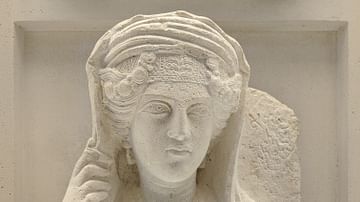
Image
Bust of Sa'da, a Palmyrene Woman
Bust of Sa'da, duaghter of 'Aliyat. Palmyra, late 2nd century or early 3rd century CE.
Louvre Museum, Paris.
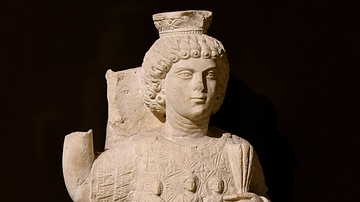
Image
Statue Dedicated to Jupiter Heliopolitanus
This limestone statue was dedicated to Jupiter Heliopolitanus by Sextus Proculus, the commander of the 2nd cohort. Roman Period, 2nd century CE. From Sukhne, northeast of Palmyra, in modern-day Syria. (Museum of Archaeology, Istanbul, Turkey...
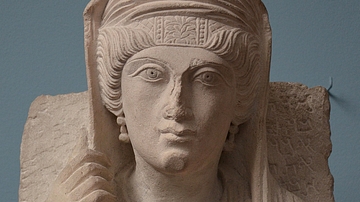
Image
The lady Marti relief
The lady Marti, a funerary portrait of a woman from Palmyra, c. 170-190 CE (Ny Carlsberg Glyptotek, Copenhagen).

Definition
Roman Egypt
The rich lands of Egypt became the property of Rome after the death of Cleopatra VII in 30 BCE, which spelled the end of the Ptolemaic dynasty that had ruled Egypt since the death of Alexander the Great in 323 BCE. After the murder of Gaius...

Definition
Mavia
Mavia (r. c. 375-c. 425 CE) was a warrior-queen of the semi-nomadic Tanukhid Arab tribe of Syria and Jordan who led a successful insurrection against Rome in 378 CE. She is also known as Maowiva, Mu`awiya, Mauia, Mania, and Mawiyya. Her control...
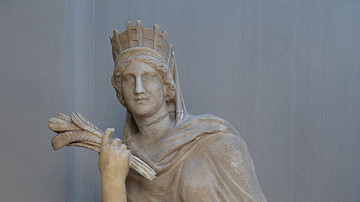
Definition
Tyche
In Greek mythology, Tyche is the goddess and personification of good luck, chance, and fortune. Tyche's popularity grew after the Classical period when many cities and officials across the Greek world and the Mediterranean adopted her as...
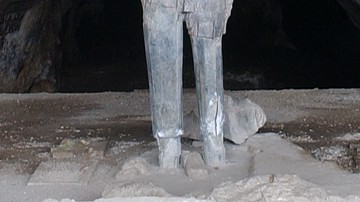
Definition
Shapur I
Shapur I (r. 240-270 CE) is considered one of the greatest kings of the Sassanian Empire for expanding his realm, his policy of religious tolerance, building projects, and committing the Zoroastrian scriptures (Avesta) to writing. He was...
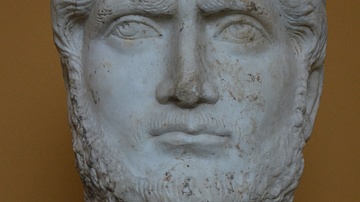
Definition
Gallienus
Gallienus was Roman emperor from 253 to 268 CE. Publius Licinius Egnatius Gallienus, the eldest son of Emperor Valerian, was named co-emperor by his father in 253 CE. He was one of many who would claim the throne over the next two decades...
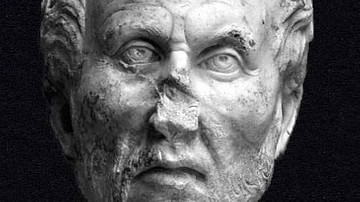
Definition
Plotinus
Plotinus (c. 204-270) was a Platonic philosopher born in Lycopolis, Egypt. Although the story of his life was written down by his student Porphyry, few biographical details are included because Plotinus rejected the physical world of appearances...
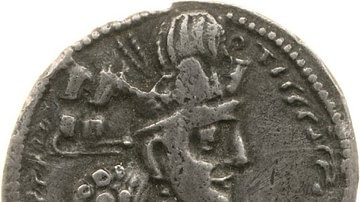
Definition
Shapur II
Shapur II (r. 309-379 CE, also Sapur II) was the tenth monarch of the Sassanian Empire (224-651 CE) and among the most successful. Under his reign – which lasted his entire life – the Avesta (Zoroastrian scripture) was committed to writing...